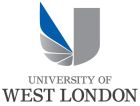A marveilous newtrality have these things mathematicall and also a strange participation between things supernaturall, imortall, intellectuall, simple and indivisible, and things naturall, mortall, sensible, compounded and divisible.
John Dee, The mathematicall praeface to the Elements of geometrie of Euclid of Megara (1570) as editor of Euclid's Elements, translated by Henry Billingsley.

